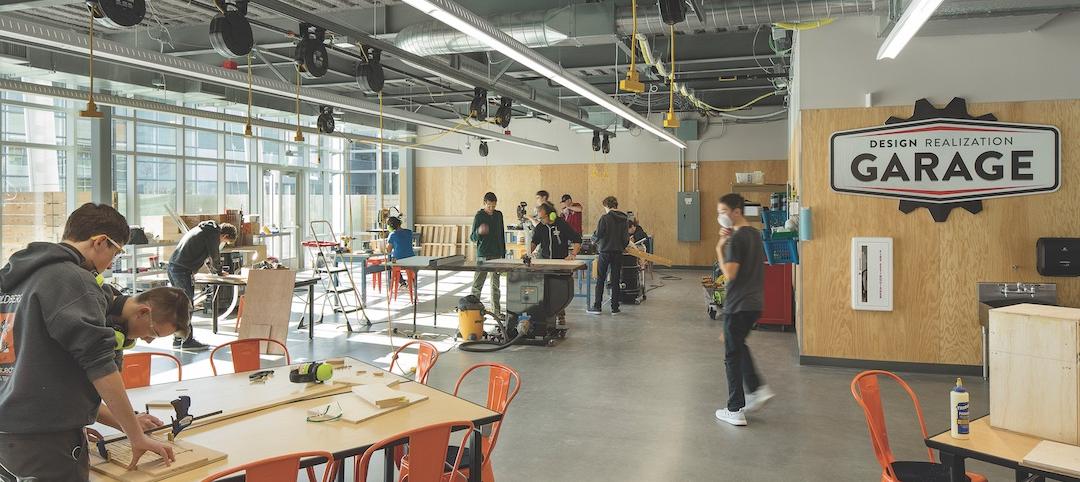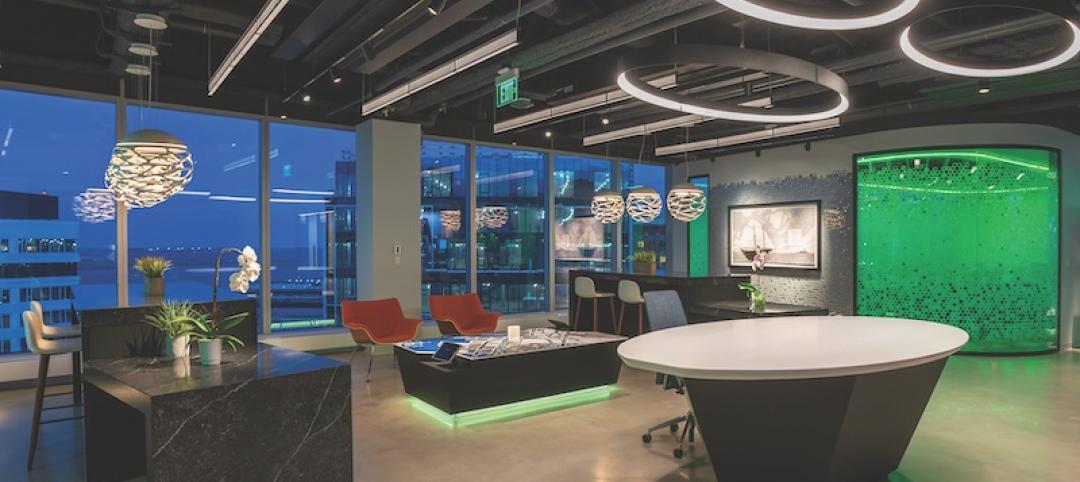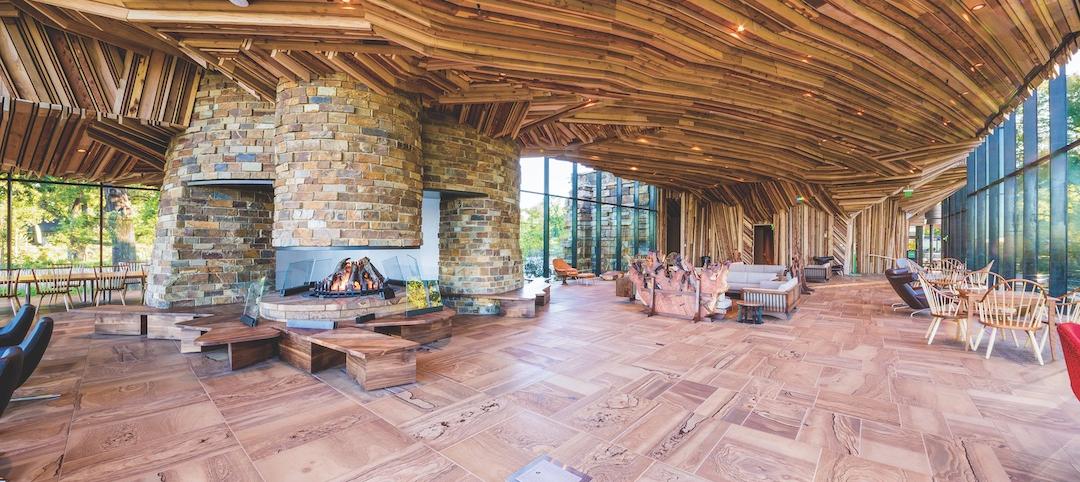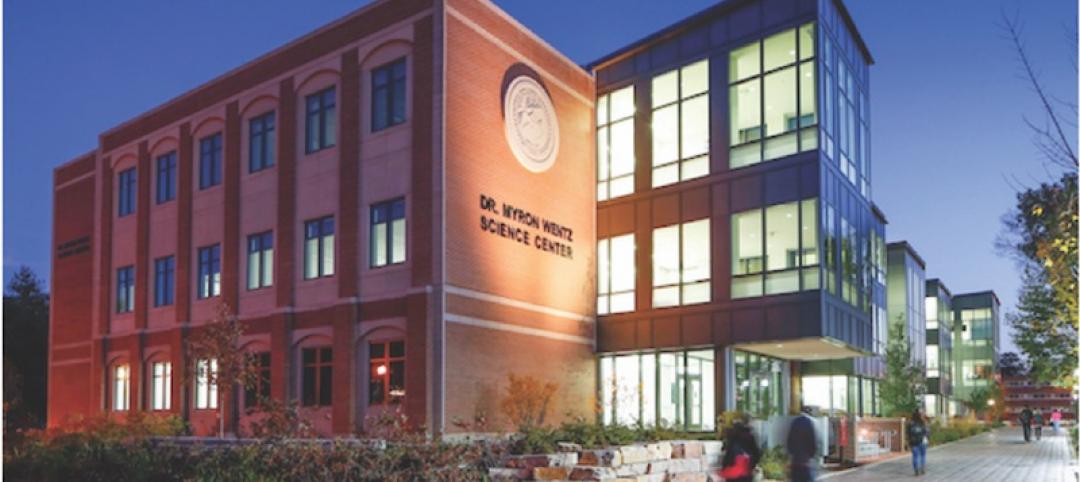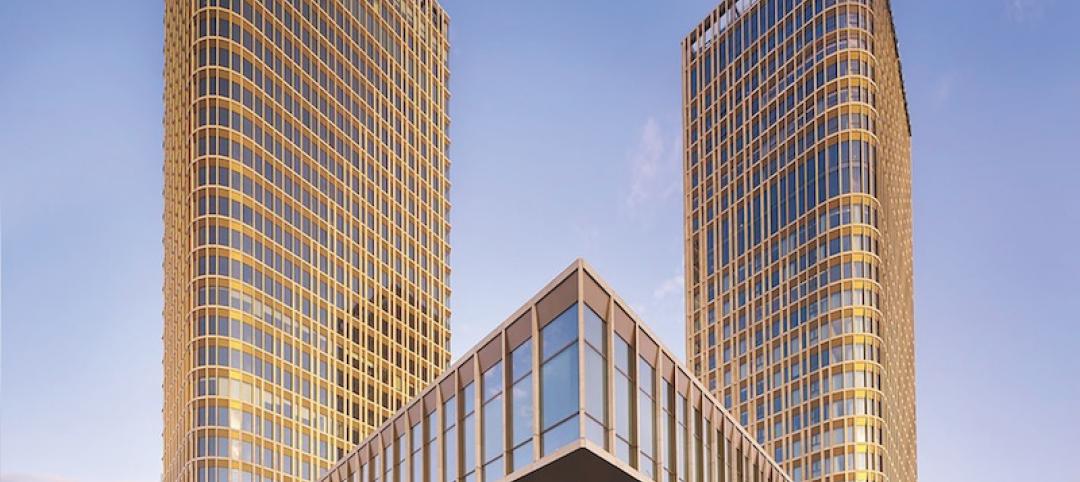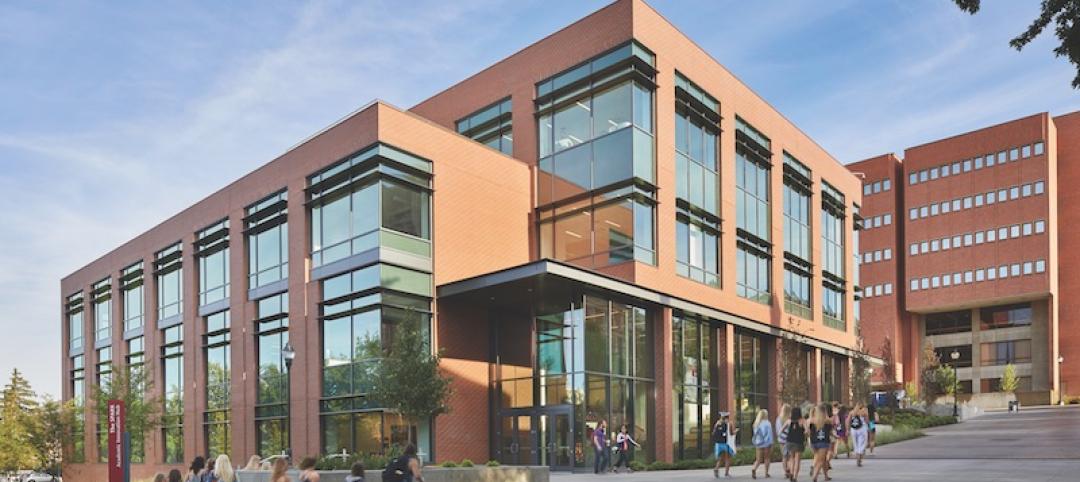Eight years ago, when the state of Iowa moved to replace its outdated women’s prison, Warden Patti Wachtendorf was explicit about her vision for the new facility. “I wanted a prison that didn’t look like the stereotypical prison,” she recently recalled. “I wanted it designed for women, not men.”
To Wachtendorf, a 37-year corrections veteran, that meant it had to have “lots of natural light” and “an atmosphere that would allow women to feel safe so they could work out the issues that had brought them to prison in the first place.” Of course, it had to be safe and secure for both offenders and staff; after all, some inmates were convicted murderers.
The 888-bed Iowa Correctional Institution for Women (ICIW), which opened in early 2017, is a far cry from the dark, damp, and dreary hellhole where the state’s female offenders were previously confined. The two-phase, $80 million project, designed by lead architect STV, resulted in the construction of five new buildings and the renovation of six old ones. The Mitchellville campus now houses:
— A “programs building” with a gymnasium, classrooms, vocational education areas, counseling suites, and a library with large windows for natural light.
— A new food services building with two daylit dining halls.
— A healthcare building with a hospice, assisted living facilities, a medical clinic, dental and optometry services, and a mental health unit.
The project team introduced several elements deemed important to female offenders. Showers and bathrooms were equipped with modesty screens and doors. A children’s play area and an outdoor visitor’s courtyard were installed. To avoid over-illumination, which can disturb inmates’ sleep and raise their anxiety level, STV designed the facility to allow the women to control the lighting in their cells and in dayrooms.
The cells were carefully planned. “The women like bunking two to a room, but they don’t want to climb into bunk beds,” said David Miles Ziskind, FAIA, NCARB, LEED AP BD+C, Chief Architect and Senior Vice President at STV. The designers configured the cells to put two beds on the floor and still provide room for comfort.
 A children's play area humanizes the atmosphere. © Brent Isenberger Photography.
A children's play area humanizes the atmosphere. © Brent Isenberger Photography.
STEPPING UP ON MENTAL HEALTH
The design and operation of the institution’s 76-bed Mental Health Unit may be its crowning achievement. At first the plan called for staff offices to be located in the center of the complex, away from the mental health area to the south. “Staff said no, no, no! We need to be right there on the unit!” said Tim Darr, Treatment Services Director.
The unit’s design is in line with the state’s goal of reducing the three-year recidivism rate from 30% to less than 20% in a decade. There are three levels of care—acute, subacute, and intensive outpatient. A team of specially trained corrections officers, two counselors, and a psychologist can move patients from one level to the next, often in quick transitions, based on behavior and treatment needs. “We’ve changed our way of thinking,” said Darr, a 17-year corrections’ veteran. “We’re helping them manage their problems, helping them live outside their cells, but without having to be housed with the stronger personalities in the general population.”
One intriguing way this is achieved is through the unit’s three “watch pods.” Each is a glass-enclosed area that surrounds several cells. “If we have an aggressive offender, we can put her in a watch pod without having to put her in her cell, and staff can keep an eye on her from behind the glass,” said Darr.
 Floor plan shows the organization of the mental health unit into acute, subacute, and step-down areas. Staff offices are integrated into the unit. Courtesy STV.
Floor plan shows the organization of the mental health unit into acute, subacute, and step-down areas. Staff offices are integrated into the unit. Courtesy STV.
THE PROOF OF THE PUDDING
In its brief existence the ICIW has become the talk of the corrections community. This year alone, corrections officers from six states have toured the facility, as have those from several foreign countries, most recently Bosnia.
But the truly important data point is the 66% decline in “critical incidents”—a disturbance where security has to be called in—in the new facility. “That’s very significant, especially since one-third of the incidents were attributed to a single offender,” said Jerome Greenfield, MD, Health Services Administrator, Iowa Department of Corrections and a Distinguished Fellow of the American Psychiatry Association. Greenfield credits the highly trained staff and the uplifting spirit of the new environment for the sharp drop in critical incidents.
See Also: Sweat equity marks landscaping effort
The Iowa Correctional Institution for Women is a textbook case of design having a positive impact on the people for whom the work was built. “There was one inmate who for 10 years in the old prison never let her family visit her, she was so ashamed of her environment,” Ziskind said. “Now they visit weekly, and she’s proud to see them. Think what that means to her as a human being.”
 The visitation lounge features a wood acoustical ceiling, comfortable furniture, and large windows for daylighting that look out onto the campus and visitation courtyard. © Brent Isenberger Photography.
The visitation lounge features a wood acoustical ceiling, comfortable furniture, and large windows for daylighting that look out onto the campus and visitation courtyard. © Brent Isenberger Photography.
Building Team — Submitting firm, lead architect STV Owner Iowa Department of Corrections Architecture consultants Design Alliance Inc., BBS Architects|Engineers SE Raker Rhodes Engineering CE Snyder & Associates MEP/FP BBS Architects|Engineers LEED/Sustainability consultant Shive-Hattery Electronic security systems design Tim Redden & Associates Landscape design Iowa State University GC Walsh Construction Company II LLC CM (phase 1) Heery International CM (phase 2) Samuels Group
General information – Size 324,354 sf Cost $80 million Construction time February 2011 to February 2017 Delivery method Design-bid-build
Return to the 2018 Building Team Awards Landing Page
Related Stories
Building Team Awards | Jun 12, 2019
Delectable design: A traditional French pastry was the concept behind the Krause Gateway Center
Gold Award: Krause Gateway Center’s striking design takes its cue from the traditional French dessert mille feuille.
Building Team Awards | Jun 11, 2019
Learning by doing: Students took an active role in the design of the Bay Area's d.tech high school
Gold Award: D.tech had been occupying temporary spaces that were hardly suited for design thinking.
Building Team Awards | Jun 10, 2019
Technology showcase: PTC's new digs combine lively workspaces with exhibits for its products and platforms
Gold Award: PTC began its fitout even as 121 Seaport was still under construction.
Building Team Awards | Jun 7, 2019
Fast delivery: Construction of McDonald's global headquarters was completed in under seven months
Gold Award: The building has a remarkably diverse array of spaces that include “work neighborhoods.”
Building Team Awards | Jun 7, 2019
Unifying force: A place where a million Tulsans can connect, one by one
Platinum Award: Gathering Place is a 66½-acre public park and playground serving the nearly one million residents of greater Tulsa, Okla.
Building Team Awards | May 24, 2018
Green machine: Janet Durgin Guild and Commons at Sonoma Academy
Honorable Mention: A college prep school gets an uber-green maker space and cooking lab.
Building Team Awards | May 24, 2018
Good neighbor: Wentz Science Center at North Central College
Bronze Award: A conscientious Building Team takes steps to minimize the impact of this large-scale science center project in a historic neighborhood.
Building Team Awards | May 23, 2018
13 projects earn BD+C's 2018 Building Team Awards
Iowa’s game-changing correctional institution and Chicago’s daring hotel and sports development are among 13 projects to earn honors in BD+C’s 2018 Building Team Awards.
Building Team Awards | May 23, 2018
Engineered for extremes: Talan Towers
Bronze Award: Astana’s shimmering mixed-use towers are made to stand up to the region’s harsh, long winters.
Building Team Awards | May 22, 2018
High-tech haven: The Spark at Washington State University
Silver Award: A ‘teaching in the round’ classroom highlights this innovation hub at Washington State University’s Pullman campus.




